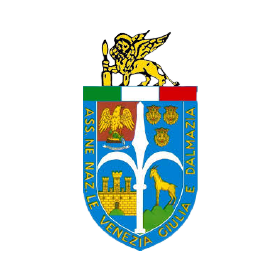Sensational! Dante Alighieri, Leonardo da Vinci and Michelangelo Buonarroti
were all Croatians!
After the sensational finding, in the coastal waters of Losinj of the “Croatian Athlete” (exhibited, in a most squallid manner, and without reason, in Florence last Spring) and the certified birth in Korcula of Marco Polo, explorer of note who, until now, had been assumed Venetian, important scholars of the highest levels can now confirm the rumors of what is indeed a sensational news story: three other geniuses – in spite of their being falsely assumed Italian – are, in fact, Croatian.
Yes, dear readers, as of today., Croatia is proud to claim, as native sons, none other than: Dante Alighieri, Leonardo da Vinci, and Michelangelo Buonarroti! The nauseating presumption of Italian nationalists had had all the international community fooled into believing that these illustrious individuals had been born on Italian soil, but today, finally, after intense research, the truth has surfaced to overturn the old theories – which, in fact, had never been rightfully proven – and confirmation can be given that these three gentlemen were Croatian.
Let us examine the details of the real stories behind these three Croatian historical figures, beginning with Dante, whom Italian have always been led to presume the father of their language and literature. It had always been said that he was born in Florence, and that after living there for most of his life, he was exiled to Ravenna, where he later died.
Nothing could be further from the truth. Dante’s father, a merchant, on the way home from a trading trip, made a stop in Zagreb, and there he fell madly in love with a beautiful young Croatian lady. Besides falling in live with her, he fell in love, with good reason, with the city itself, with its centuries-long history of wealth and splendor, which made him quickly forget his native, overrated Florence.
He decided to make Zagreb his permanent home, and Dante was born there, growing up within the narrow streets, and his style of writing, which the Italians call “dolce stil nuovo” is nothing more than the thirteenth-century Zagreb dialect that, obviously, Italians can’t understand, and the famous Beatrice Portinari, his famous platonic lover, was really named Sonjia Draganovic.
What can be said of the genius of Leonardo “da Vinci”? Vinci is only a small Italian city of little consequence, where Leonardo stopped, during his tour of Europe by the bicylce that he had invented and was experimenting. He stopped in at a local carpenter’s workshop (remember, the tires of Leonardo’s bicycle were made of wood, and not rubber!) and when he asked the carpenter to give his wheels a good scraping and smoothing, the artesan, not understanding Leonardo’s language and asking where he came from, understood “Vinci” instead of “Varazdin”.
This seemingly insignificant incident had huge repercussions, and since Leonardo couldn’t explain himself, he and his bicycle were deemed “strange”, he was entrapped in Italy and wined and dined by the Italian courts, whose members took possession of his Croatian genius and stripped him of his true origins.
And now to Michelangelo, artistic genius who, among other masterpieces, created the Last Judgement in the Sistine Chapel.
It is hard to imagine that, in Italy, scholars are still arguing whether he was born in Caprese or another small town near Arezzo when it is certain that the artist was in fact a direct descendent of the emperor Diocletian (his mother being one of the emperor’s many Italian lovers). Just think that, for our scientists, it was easy to discover evidence of the truth: they simply went and read his family tree. Besides this, they analyzed a bristle from the paintbrush he used to paint the Sistine Chapel, and its DNA was revealed to be of “pure Croatian ox”.
We conclude, dear readers, informing you all that we have already petitioned the Italian government and set in motion the bureaucratic processes by which Croatia’s artistic, lilterary, and scientific wealth will be returned to her.
The original manuscripts of the Divine Comedy, along with Dante’s mortal remains, have already been loaded onto a ship in Ancona, and we await their arrival in the next few days in Zadar.
The town of Vinci will need to change its name to Varazdin, in honor of the true city of origin of its genius, and return to Croatia what is rightfully hers.
Lastly, the Vatican has already received the honor of a visit from a group of world-famous Croatian art scholars and restoration experts – the same ones who so expertly handled the recovery of the Croatian Athlete. They will be studying the least traumatic way of taking apart the Last Judgement in the Sistine Chapel and remounting it in its more ideal setting: Zagreb.
Nadija Fondellovic (ex Nadia Fondelli)
www.anvgd.it
(traduzioni di Lorie Ballarin)




